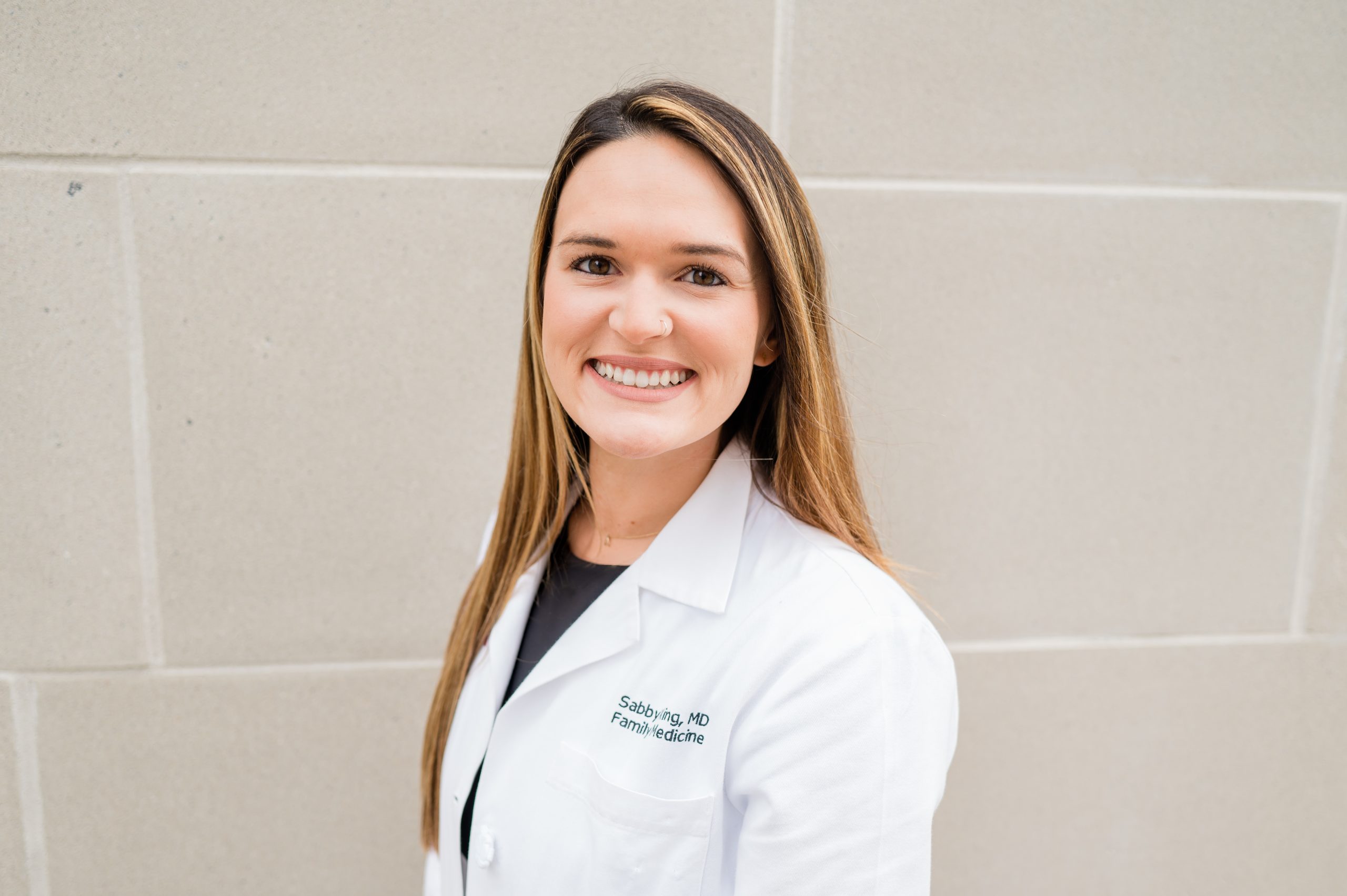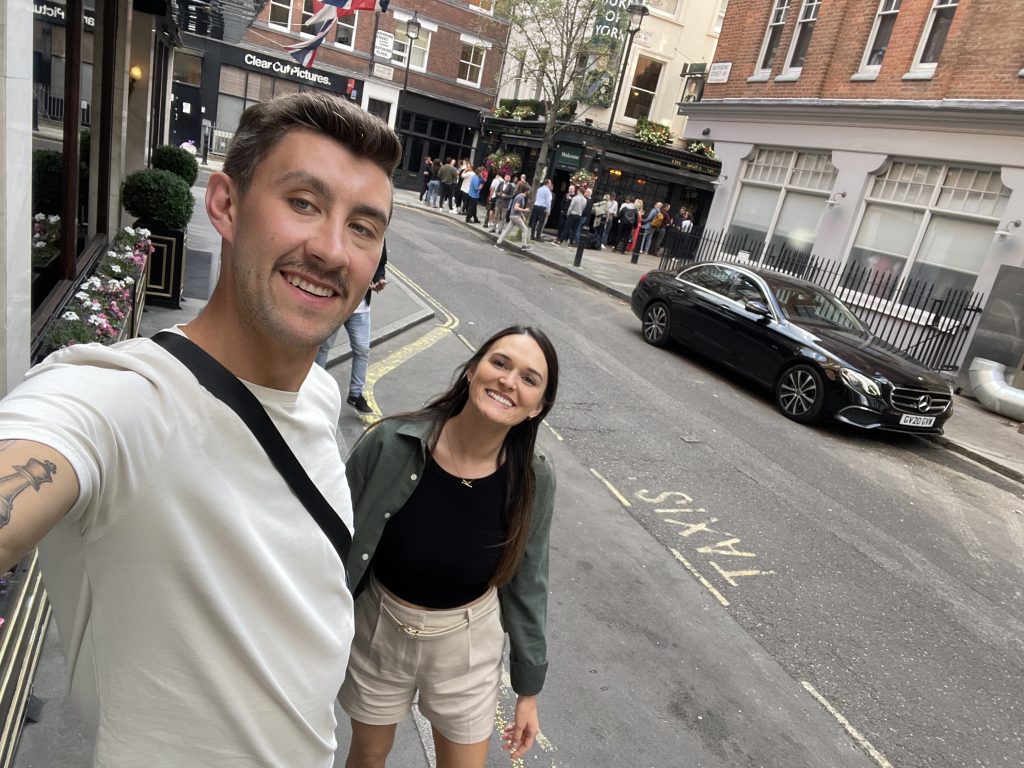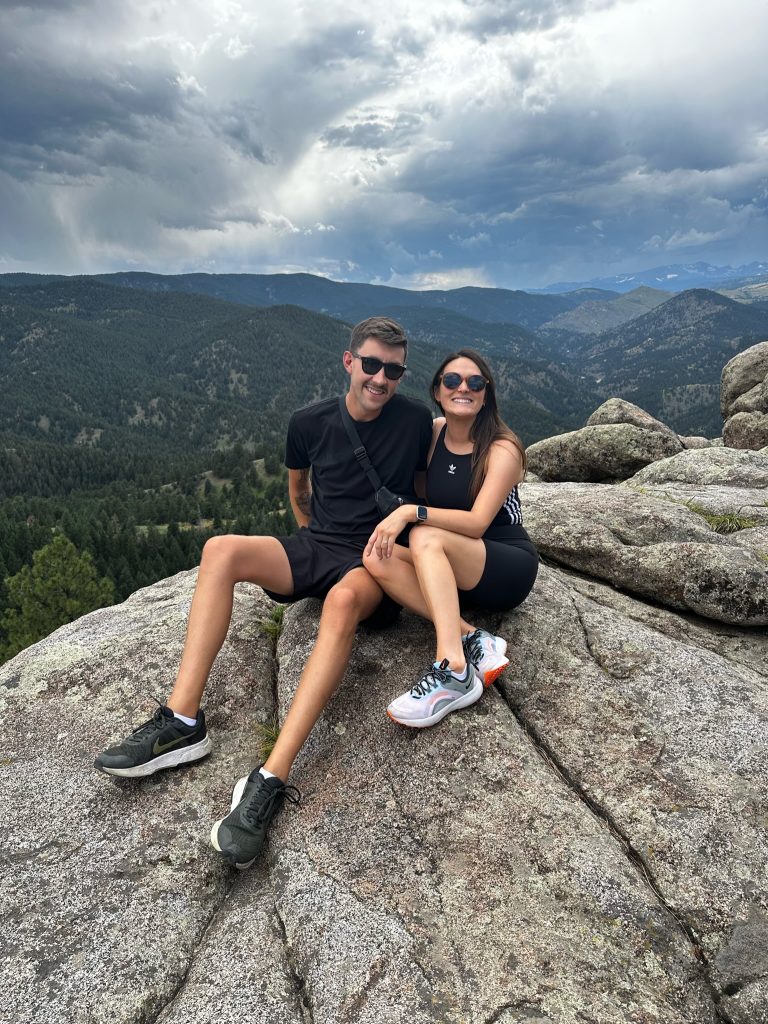
When Sabby King graduated from high school in Louisiana, she knew she wanted to become a doctor. After a couple of years as a microbiology major at Louisiana State University, King decided to follow her high school boyfriend to the University of Missouri, where most of her microbiology credits transferred into nutrition credits. While the relationship didn’t last, her decision to pursue a degree in dietetics has had a lasting impact on her career.
“Don’t worry, the story has a happy ending,” King said. “I met the love of my life my senior year at Mizzou and we’ve been happily married for five years, and I use my undergraduate degree much more than most physicians.”

King, who came from a more general science background in microbiology, loved the human application of science that came with her dietetics and nutrition courses. When she got involved in a research lab that studied protein-based diets and weight loss, she found a passion for the way nutrition could change people’s lives.
“It was very rare for medical schools to see nutrition majors in their applications,” said King. “By the time I applied I already had a lot of practice counseling patients and had done human research because I was passionate about the subject, not just because I felt like I had to.”
When King got to medical school, she already had tangible experience in nutrition and human physiology concepts that her classmates were learning for the first time. Now a family medicine practitioner in Greenville, South Carolina, specializing in diabetes, blood pressure and weight loss, King often uses the information she learned about reading nutrition labels to teach her patients how to reach their goals. With an extra certification in lifestyle medicine from the American College of Lifestyle Medicine, her practice is unique from most doctor’s visits.
“Every single new patient visit I have is at least 40 minutes long, which is unheard of,” King said.

During this time, she finds out as much about the patient’s lifestyle and health as she can, in addition to traditional diagnostic testing, and then helps them learn and develop nutrition habits to improve their health.
“Their willingness to changes influences how much I’ll educate them on and what we’re going to do next, and what their personal goal is,” she said. “So, depending on how motivated they are, we’ll really get into it. I will explain a lot of science to them.”
After the visit, she provides patients with both the traditional medical intervention they may need, in addition to exercise ideas and recipes that will fit into their lifestyle and help them meet their goals.
King also draws on her experience in an honors undergraduate nutrition didactics class at Mizzou that discussed the many social factors involved in health decisions, especially when it comes to food and nutrition choices.
“That class broadened the way I think about medicine and nutrition, even now,” said King. “Throughout my time in CAFNR I got exposed to new ideas and new people, since I wasn’t just around science people all the time. CAFNR has a lot of left-brain thinkers as well, and they taught me a lot.”
King wants to encourage students to pursue a degree in nutrition and exercise physiology if they’re interested in the medical field.
“It’s not an easy major, but it was great preparation for medical school, or even dental school for some of my friends,” said King. “And even if you change your mind on human medicine, it’s cool to learn things you can take home and use to better your own life.”